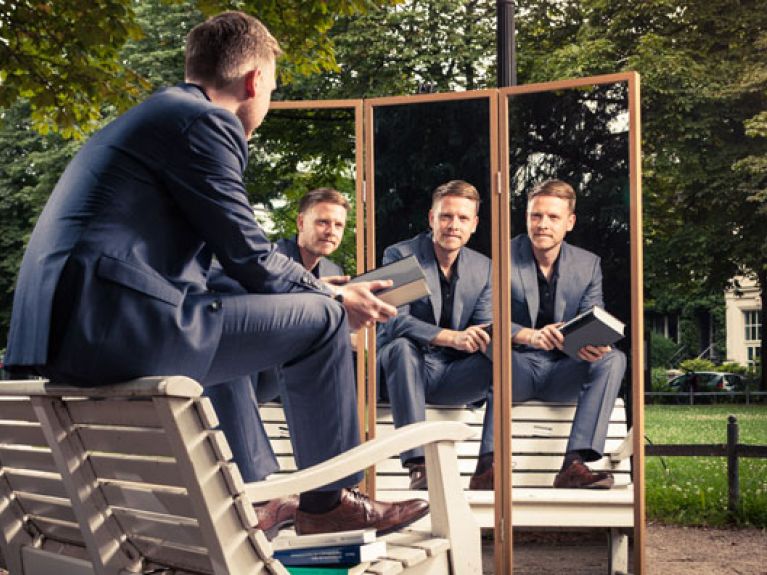Renaissance of German Philosophy
A brief interview with philosophy professor Markus Gabriel from the University of Bonn about World Philosophy Day.

Professor Gabriel, you once said that Germany was a world leader in philosophy for 200 years, and that it is now time to revive this tradition. Is this possible?
Why not! To this day, the work done by big names such as Kant, Fichte, Schelling, Hegel, Marx, Nietzsche, Husserl etc. – a constellation that had global impact – has yet to be fully analysed and understood and is more topical than ever. There is now an excellent opportunity to reconstruct the fundamental ideas of this tradition at the height of contemporary global philosophy and in view of the academic and political challenges of our time. Naturally this also gives rise to entirely new ideas which merely have their roots in the great tradition of classical thinking. Philosophers like Habermas and Gadamer also pursued precisely such a project. What is important is that the arguments should be defended in a form that is acceptable today.
What is the current status of German philosophy by international standards?
Philosophy in Germany has an international presence and is of interest because as a matter of principle it follows a different direction to that pursued by the other currently influential philosophical tradition, namely US contemporary philosophy. What characterizes that which is termed “German” philosophy is that it does not assume that everything that exists can be explained by science. It adopts an opposing stance to naturalism, which does hold such assumptions. This is why the humanities were developed in the nineteenth century on the basis of philosophy, which also explains why German universities were so successful at that time. The philosopher Fichte, and indeed Hegel and Schleiermacher, set up the Berlin University as its rectors and developed a university system that was the best in the world until the disaster of 1933.
Which subjects, schools of thought and names are being discussed?
Ideas from Germany currently being discussed worldwide include above all the schools of thought of new realism, the critical theory of the Frankfurt School and follow-up projects to German idealism such as those being developed in Leipzig and Heidelberg. These projects combine the virtues of US contemporary philosophy (in particular its clarity of argumentation and theory construction) with the far-sighted vision of German-speaking philosophy. In the USA, philosophers such as Thomas Nagel, John Searle, Judith Butler and Robert Brandom have led the way, while in Germany this can of course be done much more successfully thanks to the existing tradition here. This is in our hands. At present, there is international discussion of the work of people like Sebastian Rödl, Rahel Jaeggi, Anton Koch and Axel Honneth, to name but a few of those who can be attributed to these schools of thought.
You were appointed Germany’s youngest philosophy professor at the University of Bonn in 2009. How did you end up in philosophy? What is it about this subject that you find so fascinating?
Even as a 15-year-old schoolboy I asked myself where exactly it is that we find ourselves. Are we merely a pile of elementary particles in a meaningless universe? Is what we perceive to be reality nothing but an illusion, a kind of dream, or are we capable of recognizing things as they really are? No other branch of science is able to answer these questions with such razor-sharp definitions – that is the job of philosophy, which of course also engages in dialogue with the other natural sciences and humanities. For me, the great fascination of philosophy these days is that there have never before been so many outstanding philosophers working in a global exchange of arguments. What is more, many dogmas have fallen away: actually one has never before been able to think as freely as one can today, which is related to the accomplishments of the modern age. Philosophy also plays its part in this, its theory constructions revolving primarily around the question of which world view can be regarded as justified (if indeed one can at all). Philosophy reflects upon what constitutes the human spirit, how a just society should function and how we make it clear to ourselves that we are free. This form of reflection is absolutely essential in a global world order.
World Philosophy Day on 19 November 2015
www.philosophie.uni-bonn.de/personen/professoren/prof.-dr.-markus-gabriel-2
